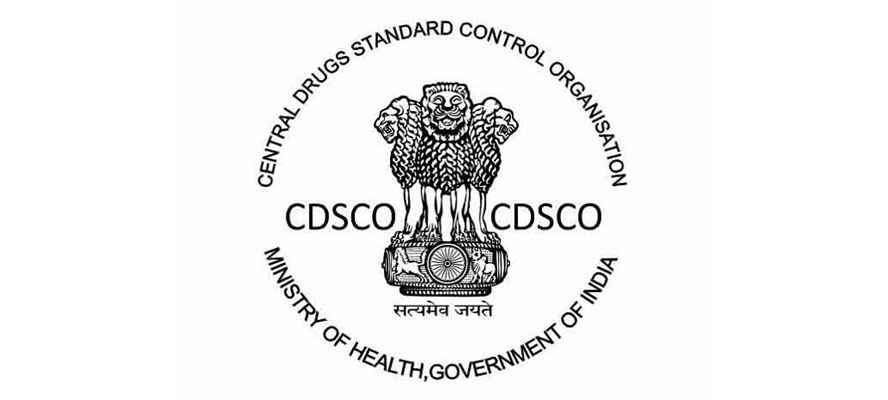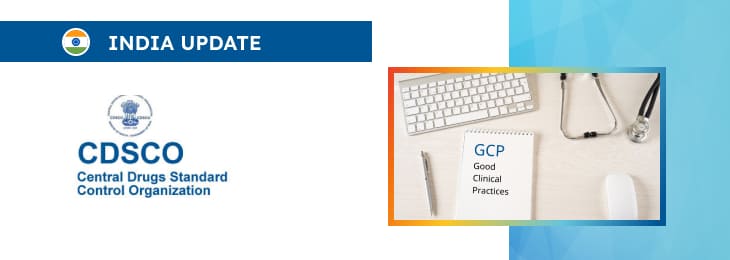The article highlights the key points related to clinical trials and the way they should be conducted in order to ensure the accuracy and reliability of the results, as well as the safety of the patients involved.

Table of content
The Central Drugs Standard Control Organization (CDSCO), an Indian regulating authority in the sphere of healthcare products, has published a guidance document dedicated to Good Clinical Practices. The document provides an overview of the best principles and approaches, as well as additional clarifications and recommendations to be considered by the parties responsible for clinical trials involving healthcare products in order to ensure compliance with the applicable legal framework.
Introduction
The development of Good Clinical Practices (GCP) has its roots in the Hippocratic Oath, the fundamental ethical principle in medicine that urges practitioners to “do no harm”. While the oath was sufficient in ancient times, the complexities of modern biomedical research necessitate more detailed and specific guidelines.
GCP is a comprehensive set of standards that govern the design, conduct, analysis, and documentation of clinical trials involving human participants. These guidelines ensure that research conducted on human subjects is ethical and scientifically sound, protecting the rights, safety, and well-being of the participants while ensuring the authenticity of the data collected.
The key principle of GCP is that the interests of science and society should never overshadow the well-being of study participants. It also ensures that the clinical properties of drugs or treatments under investigation are thoroughly documented.
By following GCP, research organizations can produce reliable data while maintaining the highest ethical standards.

Scope and Flexibility
The guidelines published by the CDSCO are structured to accommodate a wide range of clinical research designs. They encourage careful planning and consideration of each study’s unique aspects, such as the nature of the investigational product, the medical condition being studied, the characteristics of the participants, and the type of data being collected.
This flexibility allows for the adaptation of the guidelines to suit different research methodologies while maintaining the quality and reliability of the research. Technological advancements, such as digital health technologies, wearables, and sensors, offer innovative approaches to clinical research.
These technologies can help streamline data collection and improve the inclusiveness of clinical trials by allowing a broader range of participants to be involved. Importantly, these innovations should be tailored to the specific characteristics of the study participants and the research design.
Stakeholder Involvement
The design of a clinical study should not only be grounded in scientific principles but should also involve input from a wide array of stakeholders. These include patients, healthcare providers, regulators, and other relevant parties.
This collaborative approach ensures that the research is more likely to yield meaningful outcomes that are relevant to both current study participants and future patients. Stakeholder input is also crucial for determining the feasibility of data collection and ensuring that participation in the research is not unduly burdensome for participants.
For instance, feedback from patients can provide valuable insights into the practical aspects of clinical trial participation, such as the frequency of visits, the types of data collected, and the overall convenience of the trial procedures.
National and International Alignment
These GCP guidelines have been developed in consideration of national and international standards. They align with the New Drugs and Clinical Trial (NDCT) Rules, 2019 and are in harmony with guidelines from the World Health Organization (WHO), the International Council for Harmonisation of Technical Requirements for Pharmaceuticals for Human Use (ICH), the United States Food and Drug Administration (USFDA), and the European Medicines Agency (EMA).
Additionally, they are consistent with the Ethical Guidelines for Biomedical Research on Human Participants, issued by the Indian Council of Medical Research (ICMR).
Key Definitions
The guidelines introduce and define several critical terms used in clinical research, which are vital for understanding the scope and application of GCP.
The terms described in the guidelines include inter alia, the following ones:
- Academic Clinical Study: Research initiated by academic or research institutions on drugs already approved for a specific claim, focusing on new indications or dosages for academic purposes rather than regulatory approval.
- Adaptive Clinical Study: A design that allows for real-time modifications based on data generated during the study.
- Adverse Event (AE): Any untoward medical occurrence in a patient or participant receiving a treatment, whether or not it is related to the treatment.
- Adverse Drug Reaction (ADR): A harmful and unintended response to a drug that appears to be related to the treatment being administered.
- Audit: A systematic review of study-related activities and records to ensure compliance with the protocol and regulatory requirements.
Phases of Clinical Trials
The guidelines classify clinical trials into several phases, each with distinct objectives:
- Phase I: Focuses on the safety and tolerability of a drug. This phase typically involves a small group of healthy volunteers or patients.
- Phase II: Evaluates the effectiveness of the drug for a specific condition, involving a larger group of patients. The aim is to identify the optimal dose and any short-term side effects.
- Phase III: Confirms the therapeutic benefits of the drug in a much larger patient population. Data collected in this phase forms the basis for marketing approval. It also explores various dose-response relationships and the drug’s safety in combination with other treatments.
- Phase IV: Post-marketing studies that occur after the drug has been approved for use. These studies gather further information on the drug’s long-term safety, efficacy, and optimal use conditions.
Controlled Human Infection Studies (CHIS)
According to the guidelines, Controlled Human Infection Studies (CHIS) are a unique category of research where healthy participants are intentionally exposed to an infectious agent under controlled conditions. These studies play a critical role in understanding disease pathophysiology, developing vaccines, and evaluating new chemical entities.
CHIS requires strict adherence to ethical standards to minimize risk to participants while maximizing the potential benefits of the research.
Confidentiality and Ethical Considerations
A fundamental component of GCP is the assurance of confidentiality. Researchers are required to maintain the privacy of study participants, ensuring that their identities and medical information are protected.
The guidelines also address the importance of confidentiality agreements, which bind all parties involved in the research to uphold the privacy of both participants and the sponsor’s proprietary information. In addition to confidentiality, the guidelines stress the importance of obtaining informed consent from participants, which includes full disclosure of the study’s risks and benefits.
For minors or individuals unable to provide consent, assent from the individual, along with the consent of a legal guardian, is required.
Conclusion
In summary, the draft GCP guidelines presented by the CDSCO constitute a significant step forward in standardizing and regulating clinical research in India. These guidelines are now open for public consultation, allowing stakeholders to provide feedback before their finalization. As science and technology continue to advance, these guidelines will serve as a robust framework for conducting clinical trials that protect human subjects and yield meaningful scientific outcomes.
How Can RegDesk Help?
RegDesk is an AI-powered Regulatory Information Management System (RIMS) designed to simplify global compliance for medical device companies. With regulatory intelligence covering 120+ markets, RegDesk helps you prepare and publish global submissions, manage standards, conduct impact assessments, and stay ahead of regulatory changes all from a single, centralized platform. Expanding into new markets has never been easier.

